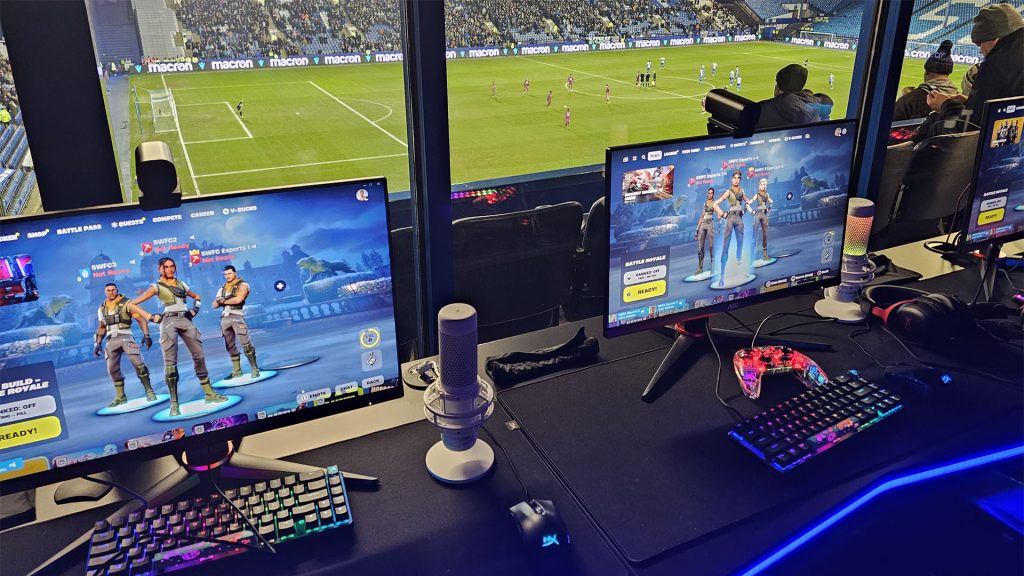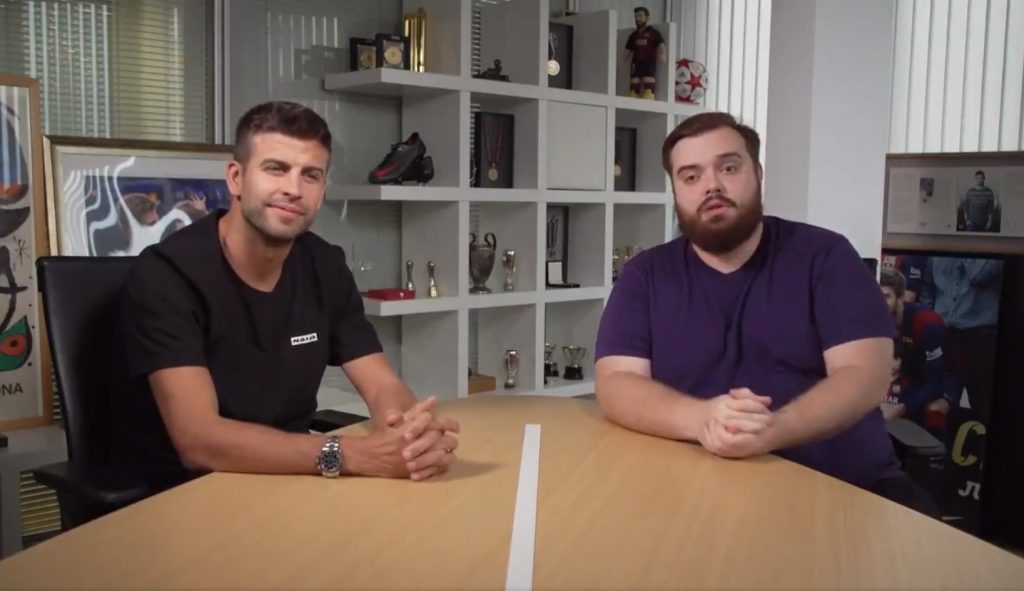Ahead of ESI Events’ flagship conference ESI Lisbon (September 23rd-25th), ‘Looking at Lisbon’ takes a look at the topics behind our content panels. This article provides a background to the creator crossover in football and gaming.

Footballers in esports is nothing new. Big names from the beautiful sport have been making moves in esports since at least 2018 — Dutch football legend Ruud Gullit launching Team Gullit in 2018 being one early example.
But it was the pandemic years when the trend really ramped up. In 2020 alone, English former footballer David Beckham was announced as a co-owner of Guild Esports, Argentinian star Sergio Agüero founded KRÜ Esports, Brazil’s Casemiro launched Case Esports, Belgian goalkeeper Thibaut Courtois became an investor in DUX Gamin, and Spain’s César Azpilicueta formed a Spanish organisation called Falcons.
Many more jumped on the bandwagon during the pandemic, likely looking to capitalise on the growth of esports during a time when football and other traditional sports were largely put on hold. Whilst some football x esports endeavours failed to make an impact (remember Ellevens Esports?), the fingerprints of footballers in the scene can still be prominently seen to this day.
The trend also hasn’t been limited to just individual players. In recent years, we’ve seen football clubs get more directly involved — including Paris Saint-Germain (PSG)’s extensive esports operations, OpTic partnering with Juventus, Man City working closely with FaZe Clan and Mkers teaming up with Inter Milan.
One trend that benefits the relationship between esports and football is the rise of content creators entering the scene. Increasingly, we’re seeing crossovers between major esports names and gaming content creators — who, much like football clubs, have been launching or investing in teams of their own.
Live streamers, YouTubers and other content creators in the gaming space wield massive fanbases, through which football clubs see an opportunity to tap into their young, valuable, highly engaged audiences. Esports could therefore create something of a bridge between these online celebrities and football stakeholders — offering opportunities for gaming creators to capitalise on.
Through clever collaborations, football clubs seek to forge and leverage connections to esports to grow their profile and fanbases. From FaZe Clan pop-ups at Man City Premier League games to OpTiC-Juventus co-branded merchandise capsules, early trailblazers are successfully connecting with gaming and esports audiences without even competing in a game.
The case of KOI, an esports organisation founded by Spanish footballer Gerald Piqué and Twitch streamer Ibai Llanos, shows just how much potential crossover there is between clubs and esports/gaming content creators.

Launched in 2021, KOI has gone on to become a prominent name in League of Legends esports and establish a foothold in many other esports scenes, garnering strong viewership thanks to an army of dedicated fans from the worlds of both Twitch and football. Moreover, KOI was previously supported by KOSMOS, a holding company headed by Piqué that is at the forefront of merging celebrities, sports, media and entertainment.
It is clear footballers and football clubs see an opportunity to leverage the popularity that gaming and esports creators possess with a younger audience. But how do these partnerships come to pass, and how can they be fostered? What exactly is the value add for content creators and esports organisations working with football clubs? How does the sport of football factor into the equation in the first place?
Join several leading stakeholders in the esports x football crossover to discuss all the above, and more, at the Football & Gaming: The creator crossover panel on September 24th at ESI Lisbon. Tickets to the largest B2B esports, gaming and creator economy industry event are still available for purchase here.
